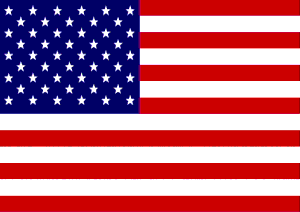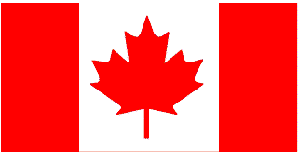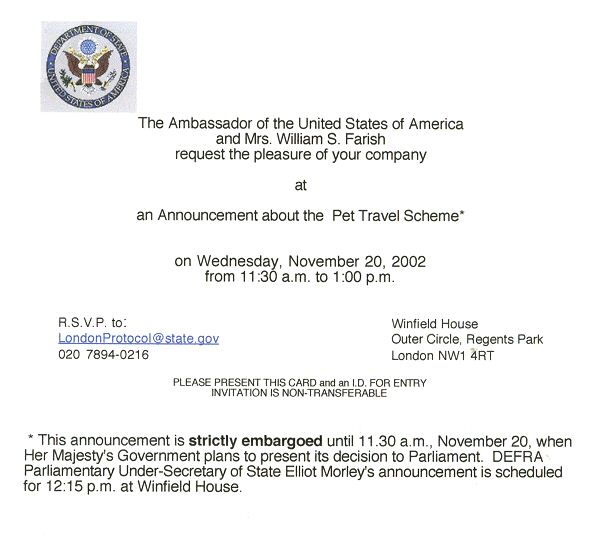NEWSPAPER COVERAGE OF THE INCLUSION OF CANADA AND THE USA IN THE PET SCHEME


THE TIMES
THURSDAY
21th NOVEMBER
2002
By Valerie Elliot (Countryside
Editor)
Quarantine
waived for US military sniffer dogs
Special
rules were secretly introduced after September 11th to allow American sniffer
dogs into Britain without having to go into quarantine. The
concession was disclosed, when Elliot Morley, the animal health minister,
announced yesterday that all dogs and cats from the United States of America and
Canada would be allowed to enter Britain on pet passports from December 11th. Mr
Morley confirmed that US Military Chiefs demanded extra surveillance at American
Bases in Britain and that a number of dogs trained in detecting explosives had
been allowed in, provided that they remained on American property for six months
and did not mix with other pets. Under
the new travel arrangements, pets can be exempted from quarantine if they are
microchipped and inoculated with an effective rabies vaccine six months before
arrival in Britain. They must be deticked and dewormed. William Farish, the
American Ambassador to London led the celebrations for the inclusion of North
America in the scheme. He and his wife Sarah, can now take Katie their bichon
frise dog, home to Kentucky for Christmas. They are also planning to buy a
second dog. Mr Morley hinted that it would be possible for the Government to
approve a pet travel licence for Airforce One if President Bush wanted to travel
to his next meeting with Tony Blair with Barney, his Scottish terrier, or Spot,
his springer
spaniel. Washington has lobbied hard for the change because many diplomats,
servicemen and businessmen and women will not take up postings in Britain
because of the quarantine laws. Mr Farish said: "So many of our military
and diplomatic personnel have gone through a lot of stress, and now it's
over." Mel Cappe, the Canadian High Commissioner also spoke of his
distress at having to leave his 16 year old cat, Butterscotch, at home
when he took his posting in London. "We could not have brought him over
here because I did not think he would survive six months in quarantine." he
said.
About 250 cats and dogs from North America are already in quarantine
kennels and , if they comply with the travel scheme rules will be released to
their owners after December 11. No airline company has yet been licensed to
carry pets to Britain from North America and until one is pets arriving at
Heathrow after December 11 will have to spend two or three days in
quarantine for veterinarian and document checks to be made. About
75,000 cats and dogs have have arrived in the country on the pet travel scheme
since it was introduced in 1999. However, vets are demanding extra checks on
dogs entering the country from North America for at least three years. Peter
Jinman, president of the British Veterinary Association and DrRicahrd Harvey
president of the British small animal veterinary association said that they
wanted to check for other diseases besides rabies, such as brucellosis and west
Nile fever. Lady Fretwell founder of Passports for Pets, was delighted
yesterday after eight years of compaigning, "It's the culmination of eight
years" hard work," she said. She now intends to wind down her
membership group and operate as a monitor of the scheme. Initial tests on a
conservation volunteer suspected of catching rabies from bat bite have have
proved negative, but doctors still think that he has the deadly infection.
Further clinical tests are being carried out on David McRae, 55, a wildlife
artist and father-of-two from Guthrie. Angus, who was admitted to hospital a
month ago. The results are no expected for several days.
Mr McRae is
critically ill in an isolation ward in Ninewells hospital, Dundee with symptoms
of gradual paralysis consistent with a rare strain of rabies found in bats,
called Ruropean bat Lyssavirus, or EBL. Drew Walker, director of public health
at NHS Tayside, said yesterday: "Lab test results to date have proved
negative and by themselves they do reduce the probability of rabies. However, it
is recognized that negative lab results do not rule out rabies." Mr
McRae is thought to have been bitten by a rabid bat in Tayside about six months
ago while working as a licensed bat handling for Scottish Natural Heritage
THE
INDEPENDENT
THURSDAY
21st
NOVEMBER
2002
By
Michael McCarthy (Environmental
Editor)
Quarantine
rules that have dogged US pets are lifted
For
decades it has been among the the biggest gripes American expatriates have about
London. Never mind the rain, the poor service in restaurants and the lack of
iced water, why can't you bring your dawg with you? Well
from next month you can, the Government announced yesterday, and the joy among
the Yanks over here was unconfined. The
United States ambassador, William S Farish, threw a party at his Winfield House
residence in Regent's Park to
celebrate extending the Pet Travel Scheme to North America, which means dogs and
cats can be brought in without having to spend six months in quarantine, if they
are inoculated. Several hundred American and Canadian dogs are expected to
pass through Heathrow. The curbs have long been resented, and the embassy has
been quietly but steadily lobbying to have them lifted.
"In this complex
world we live in. It's a treat to have some really happy news to announce,"
the ambassador, genuinely delighted, told his guests while Mrs Farish's dog
Katie, a white bichon frise, scuttled about under his feet. "It's a great
day." Katie bought in England, will now be taken home to America for
Christmas and brought back in the new year. The Farishes
gave away an earlier dog, Cotton, a Maltese terrier, who was unable to accompany
them to the Court of St James's. The Canadian High Commissioner, Mel
Cappe, also delighted, said he and his wife had to leave behind their 16 year
old cat, Butterscotch, when he was posted to London. The move will mean
George Bush will be able to bring the White House dogs, Barney and spot with him
on official visits; former President Bill Clinton can have his chocolate Labrador,
Buddy with him if he pops into London: and Elizabeth Taylor could be with Sugar,
her white Maltese, which she had to leave behind, to her regret,
when she arrived to be invested as an Honorary Dame.
American Citizens
at the Ambassador's party stressed just what an issue leaving pets behind has
been for compatriots posted to London in business, academia and the armed
services. "I know several people who declined posts in the UK because they
do not want to be separated from their pets," said Colonel Joseph Dye
of the US Air Force, stationed at RAF Lakenheath in Suffolk. Elliot Morley,
the Animal Health minister who made the announcement in the Commons and repeated
it in Winfield House, agreed. "Many who have the option to come and work in
the UK can't bear to be separated from their pets," he said. Scientists had
told him the risks of rabies from the US and Canada was very low. The scheme was
introduced in 2000, initially for western Europe and has since been extended to
more distant countries including Australia, New Zealand and Japan. Pets have
to be micro chipped for identification, inoculated against rabies and treated
for ticks and tapeworm before travel.
THE
GUARDIAN
THURSDAY
21st
NOVEMBER
2002
By
Lucy Ward (Political correspondent)
Restrictions
on pets' travel to be lifted
Quarantine
restrictions for cats and dogs traveling to Britain from the United States and
Canada are to be lifted, the government announced yesterday. The news will
please various pet-owing celebrities who have pressed for the change, including
the artist and dog lover David Hockney who spends time in both California and
London. The US President, George Bush, who likes to fly with his Scottish
Terrier, Barney, or his springer spaniel, spot, could also benefit from the new
law. The present restrictions have been in place for 100 years. The change will
mean that cats and dogs, which now have to spend six months in quarantine when
entering Britain from the US, will be allowed in directly if they are fitted
with an owner's microchip, and have been vaccinated and blood-tested to ensure
they do not increase the risk of rabies in Britain.
The animal health
minister Elliot Morley, disclosed in a parliamentary written answer the plans to
extend the pet passport scheme, which was introduced nearly four years ago, for
animals arriving from Europe. It has since been extended to pets from Australia,
Japan, Hawaii and rabies-free islands. "Some people think that we have
been too slow in extending the scheme to the US and Canada," said Mr.
Morley. "But we were not prepared to take any risk until scientific
assessments could assure us that any risk of the spread of rabies
insignificant." The government is preparing to approve specific air
routes though in the meantime pets from the US and Canada will have to spend up
to four days in quarantine while their documentation is checked. About 250
animals a month, mainly dogs are expected to travel under the scheme.

![]()
![]()
![]()
![]()
![]()
![]()
![]()
![]()
![]()
![]()
![]()
![]()
![]()
![]()
![]()
![]()
You can e-mail us at chairman@passportsforpets.org
or write to our London address:
PASSPORTS FOR PETS
Flat 11, 45 Queen's Gate
London SW7 SHR
Tel: (+44) (0)20 7589 6409
Fax: (+44) (0)20 7589 6403